Owning a car isn’t like a dream or forever enjoyment like you see in commercials. It’s like a trip to the mechanic every now and then especially if you don’t take good care of it. The cost of car maintenance is no joke and can really take a good amount off your wallet money - don’t even get us started on the repairs. Every car owner knows the stress these matters put into their minds and wallets and most of them have learned that prevention is indeed better than cure.
One of the expensive and important parts of every four-wheeled vehicle is the tires. To take care of them is also to take care of yourself and passengers while you’re taking your car out for a drive. To help you take care of your tires and save you bucks from future trouble, follow the tips Philkotse.com has prepared for you.
1. Keep Them Inflated
This means your tires should always be inflated - by inflated we mean inflated in the right amount. You pretty much know what will happen when your tires have less air than necessary, but having more air than enough can be a cause for a rough and bumpy ride. Keep the air pressure at the suggested level to avoid unnecessary mishaps, if you are not aware of your tire’s correct pressure, this information can be found on the manufacturer’s instructions provided in the vehicle’s manual.
It's best not to make random guesses with the tire’s air pressure and hoping that you might hit the right pressure by fluke since accidents caused by ignoring the state of your car’s rubber is definitely no joke.
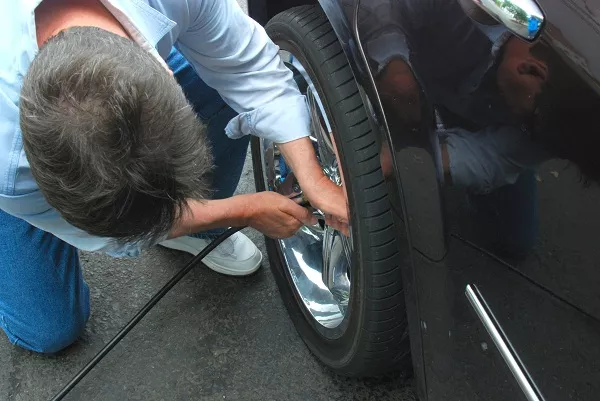
Inflate your car tire in the right amount.
2. Check the spare every now and then
This is one of the best ways to prevent having to sit on the side of the highway having to wait for road assistance. Take an occasional check on the spare tire at the back of your ride. If you’ve been safe from tire troubles for quite some time, don’t settle with the sure feeling that it’s always going to be alright between you and your car.
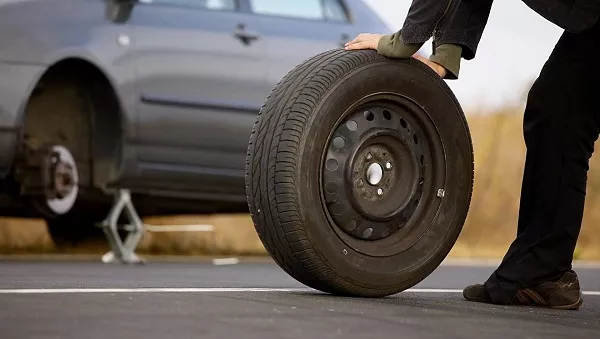
Take an occasional check on the spare tire at the back of your ride.
Examine the spare tire if you have enough time in a day just so you could settle your mind with the fact that you’ll always be ready if bad luck strikes your way. Look for signs of cracks especially on the part of the sidewall, since this is where it usually develops. If you find that the spare tire needs a patch job or replacement, then don’t hesitate to do this at once. Putting it off for another time may help you forget about it and neglect its importance.
>>> Related: How to remove tire from rim
3. Check the rubber you're riding on
Make frequent checks to the tires that are currently helping your vehicle run. They don’t only receive a great amount of work every time you drive it; they can also be greatly affected by other elements of the car in a negative way.
For example, a simple act of uneven weight distribution can do a lot to your tires – so make sure you take precautions and handle your vehicle carefully. If you notice your tires wearing thin unevenly then you might be doing something wrong or simply, something is wrong with your vehicle. Checking the tires from time to time will help you prevent not only blowing a tire but also accidents.
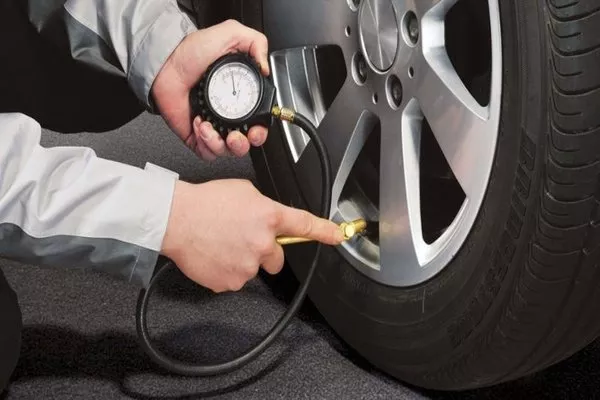
Make frequent checks to the tires that are currently helping your vehicle run.
4. Look for The Sign of Quality Tires
If you thought about getting new spare tires or just experienced your current tire giving up on you then make a smart buying decision and don’t settle for anything less.
- Look or the thick tread in new tires that speak of quality. Some of these types are thick enough to be puncture resistant.
- Purchase tires with longer warranties when it comes to wearing. These are commonly the big, famous brands in the industry so expect the price to be almost as big as it represents.
You may be tempted to go for a cheaper alternative; however, this won’t be as thick or as dependable as those with quality stuck to their name. If you’re having trouble trying to decide which tire to buy, always compare the costs of the tire compared to how many times you’ll replace it. A cheap, inexpensive tire may cost you 3 times less than that of quality tires, but you may have to change those 4 or 5 times more than that of the suggested quality tires.
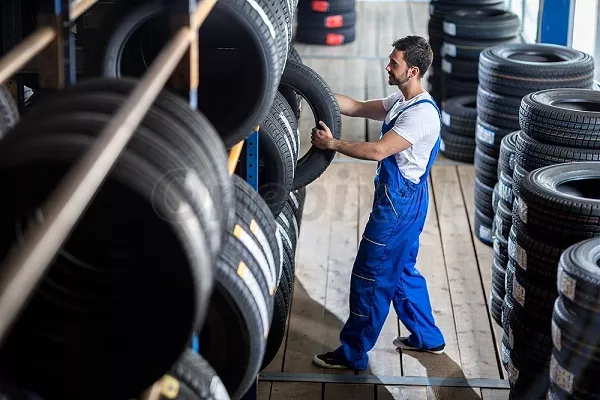
Look or the thick tread in new tires that speak of quality.
>>> You may want to read:
5. Steer away from tire hazard zones
You want your current tires to last, right? What better way to keep them safe while driving than staying away from tire-popping surfaces! These could be construction sites that could have sharp debris and materials just lying around – like shards of glass, discarded nails, screws and even sharp rocks and other objects. You are sure to be in a bad mood if one of your tires gets impaled by any of the objects while you’re just peacefully trying to pass through the area.
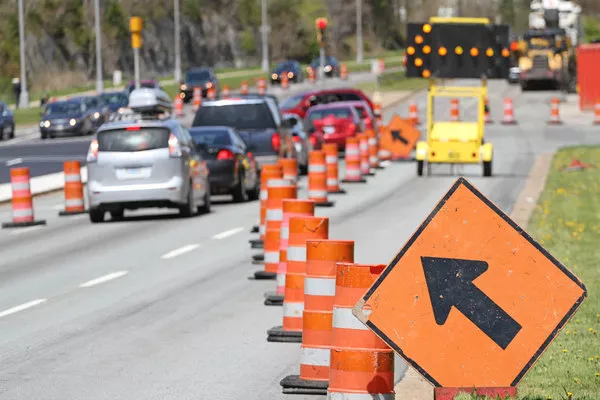
One better way to keep them safe while driving is staying away from tire-popping surfaces!
6. Stay within your spare’s speed limit
If you’re aware that your spare tire comes with a speed limit, then you might be bummed especially if you like setting the road on fire (or at least you think so). However, to avoid any further disappointing events, it’s best to stay within the indicated limit or the universal speed limit that works for most, if not all spare tires; 50 mph.
How to Fix a Flat Tire EASY (Everything you need to know)
7. Check your brakes as well
If you notice, this list actually suggests that you do a lot of checking and inspecting. One of the vital parts that need to be inspected every now and then is the brakes. Remember how we mentioned about uneven tire wear earlier? Will if you don’t notice that your brakes are not properly adjusted, then you might consider allotting some time for that.
Some may not know this but your brakes can actually contribute to uneven tire wear. Stopping and braking cause the tire to wear out, if your brakes are uneven, chances are the wearing on your vehicle’s tires are uneven too. We all know uneven wearing can lead to unlikeable events and this tip can prevent all that from happening.












